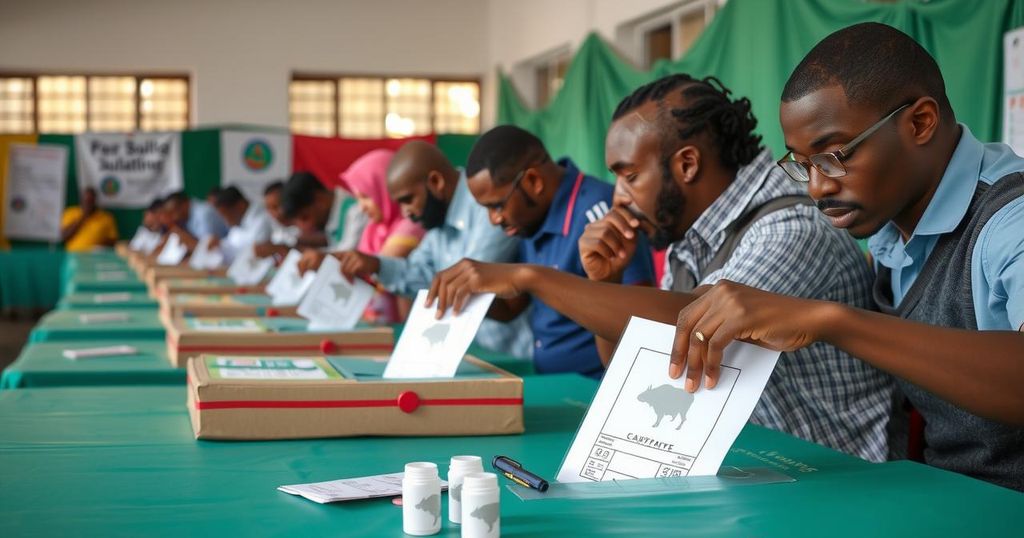Comoros Elections: Voters Cast Ballots Amid Claims of Authoritarianism
Voters in Comoros headed to the polls on Sunday for elections to fill the 33-seat parliament amid concerns of authoritarianism under President Azali Assoumani. The election follows last year’s contested reelection, with opposition parties divided over participating or boycotting the process. Results are expected by January 17.
On Sunday, voters in Comoros participated in parliamentary elections for the archipelago’s 33-seat parliament, following President Azali Assoumani’s contentious reelection last year, which opposition groups claimed was marred by significant irregularities. The elections saw officials from the ruling party deny any such allegations, as approximately 338,000 eligible voters began casting their ballots at 8 a.m. Nearly 100 candidates were selected by the country’s Supreme Court to participate in the election, which marks the first parliamentary contest since January 2020.
President Assoumani’s leadership, which commenced in 1999 after a coup, has been marked by accusations of authoritarianism. His opponents suspect he is positioning his eldest son, Nour El-Fath, to succeed him when his term concludes in 2029, particularly following the son’s recent appointment to oversee all government operations. While some opposition parties, notably Juwa, have called for a boycott of the election in response to these developments, others have chosen to participate, aiming to expose the ruling regime’s flaws.
Hamidou Karihila, representing the opposition Hope of the Comoros party, expressed that the elections could reveal weaknesses in Assoumani’s administration, stating, “The Azali regime is weakened … by participating in these elections we are contributing to further exposing the flaws in its system and accelerating its inevitable fall.” Polling stations were scheduled to close at 4 p.m., with election results anticipated by January 17.
The Comorian elections were significant as they followed the controversial reelection of President Azali Assoumani, who has faced opposition allegations of irregularities in the electoral process. With a history of ruling since 1999 and winning multiple elections, Assoumani’s regime is perceived as increasingly authoritarian. The political landscape has been tense, with various opposition parties responding differently to the electoral process. Following Assoumani’s consolidation of power, including the controversial assignment of considerable authority to his son, the atmosphere surrounding the elections reflects deep-seated tensions within the nation’s political framework.
In conclusion, the parliamentary elections in Comoros reflect a critical juncture in the nation’s political history, with President Azali Assoumani facing both allegations of authoritarianism and the challenge of opposition parties. While some factions have chosen to participate in the electoral process, others advocate for a boycott, highlighting the fractures within the political sphere. As results are anticipated, the implications of these elections on Comorian governance and its democratic processes remain to be seen.
Original Source: www.voanews.com




Post Comment